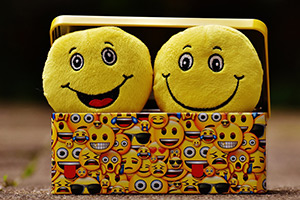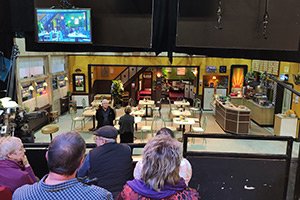How we write Tourist Trap

Tourist Trap, a semi-improvised mockumentary sitcom on BBC One Wales, is now entering its second series. We chatted to writers Gareth Gwynn, Sian Harries and Tudur Owen to find out more about how you plan and write a semi-improvised show. They offer up some great insight and tips in their answers.
How did you come to be involved in the project?
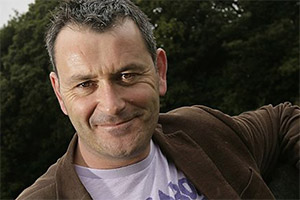
Tudur: I first met Gareth and Sian when we were tasked with creating a satirical Welsh Language S4C show from scratch called O'r Diwedd. There was no format or premise other than it should be funny, topical and ready for Christmas. I think that experience bonded us, and from then on I've felt that the three of us can pretty much take on any challenge.
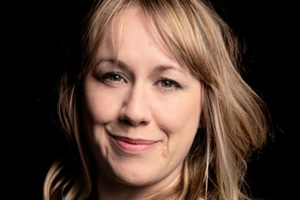
Sian: After O'r Diwedd was broadcast, Nick Andrews - the Commissioner at BBC Wales - introduced us to Rab Christie from The Comedy Unit and we all hatched a plan to create this sitcom set in the hilarious land of Welsh tourism. I think it was going to be set in a carpet shop in the Valleys at first but we all felt carpet jokes could wear a bit thin, much like this awful pun.
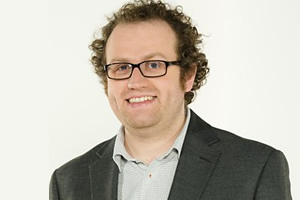
Gareth: Yes, there were a bunch of ideas on that initial list and the first one was called Underneath and was about a flooring company in Neath. Being from Neath I felt bad about depriving it of its moment in the sun, but I think it was for the best. I remember wanting something which let us represent all of Wales. I think we were aware that this could be the first new sitcom(ish) commission in years, so I know we wanted to find something which gave us a legitimate reason to talk about the whole country - not just a bit of it.
How do you write the show?
Gareth: We're all quite spread-out geographically, so meeting to discuss ideas is a bit of a logistical nightmare - but always worth doing. With both Tourist Trap and O'r Diwedd we usually kick-off by getting together for a day and blasting through ideas we've had and seeing where they go. Sometimes that's just someone arriving with the sentence "Here's something that annoys me..." and then together we can work it up to a point where they can go away and write it. For Series 2 we had our director Keri Collins and Sally Phillips in with us for one of these days too, which was fantastic.
At the end of the day, we divvy up who is going to write what and that gets the ball rolling. Then through the process there's regular Skype chats and phone calls to check-in with each other and see how we're getting on - what's working and what's proving trickier than we hoped - just to get feedback from the group.
We share stuff as we go with our exec producer Rab Christie and director Keri Collins, who keep an eye on how the characters are being served, saying "more of this" or "less of that". (Actually they rarely say "less of that". The Tourist Trap process eats material).
With Series 2, we'd done a rugby special in February and we realised there was mileage in lightly theming the episodes and adding a little more plot - as such we sort of took two episodes each at the start, to be nominally "in charge" of, but it's hardly strict and I think everyone threw ideas into every pot as the process wore on.
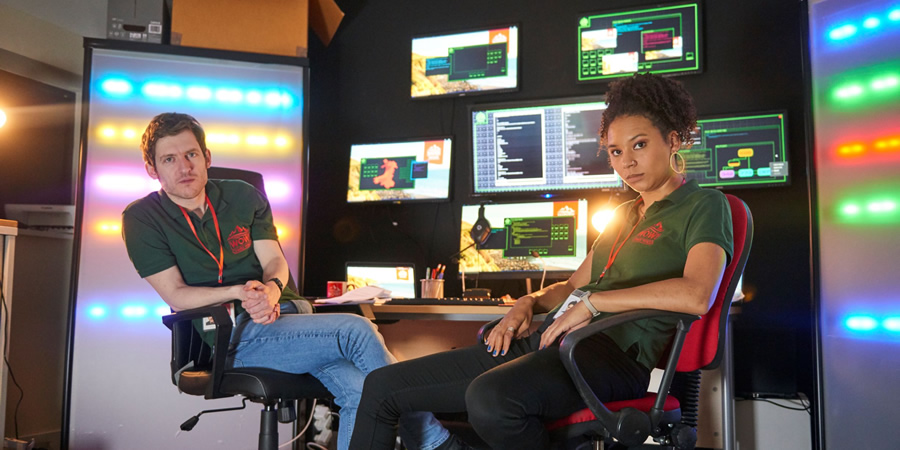
The show features improvised elements. So what do your scripts look like?
Gareth: They're not really "scripts" as you might imagine. There might be the odd line or two, but they're more descriptions of scenes and how things play out with all the key beats - basically the journey of what needs to happen. The finished Tourist Trap script has upwards of 300 scenes, each about 1 or 2 sides of A4 - so it looks more like a novel.
Tudur: We'll sometimes include suggested lines for the actors to say but invariably they will come up with dialogue that does the job perfectly. It's such a thrill to see what the actors bring to the characters and scenarios, and how they can make a promising idea work far better than you could have hoped for.
Sian: I play aggressive masseuse Meinir so I tend to write the lines for her and so her pieces to camera are all pretty much written like a script. Then when I'm in a scene with another character we'll have beats we need to hit for the story to work. I'll have funny ideas I'd ideally like to include but because I know the character so well I just know how she'd be funny in that scene. Usually by being as rude to Sally Phillips as I can get away with on BBC Wales.
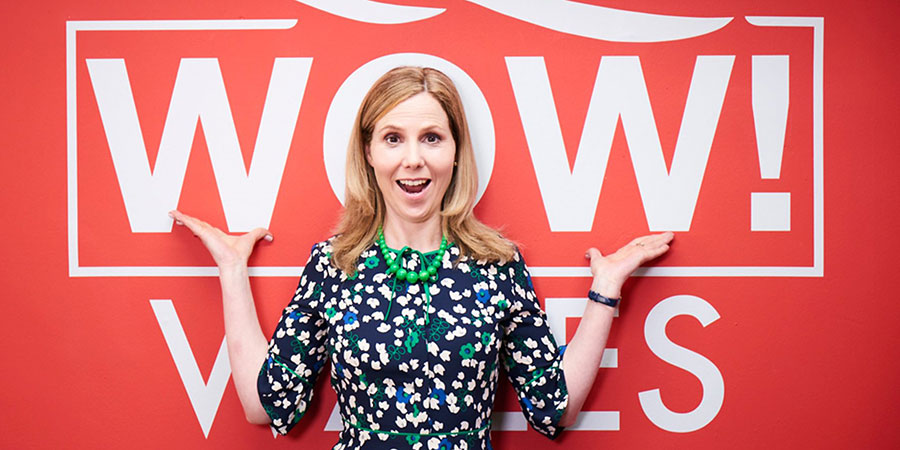
Do you have to think about budgets and similar when writing, or is that the job of the producer to deal with?
Tudur: I know I should be aware of budgets, but I usually start with an unrealistic and over ambitious idea then strip away the locations and prop vehicles so that it's got a chance of making it passed the first ideas meeting.
Gareth: I have to think about budgets a bit, because for Series 2 I became Story Producer. This involved script editing some of the material we received from other writers via BBC Writersroom. But also, because we now have plots but the dialogue is improvised, someone has to keep an eye on the key beats and write things like "KERI: MAKE SURE THEY PICK UP THE LAPTOP" or similar in big letters on some of the more plotty scenes. However, this also meant I'm there for the meetings where the person with the cash says "Right, we can have a restaurant or a bus, but not both" (we went for restaurant).
For the big decisions I always consult Sian and Tudur, but there's a decent amount of just quickly rewriting bits to have smaller crowd scenes or fewer props and locations. Which is fine, but it does mean I now watch other TV shows and go "I bet in draft one, this scene was massive".
Sian: I'm learning that real live sharks are expensive.
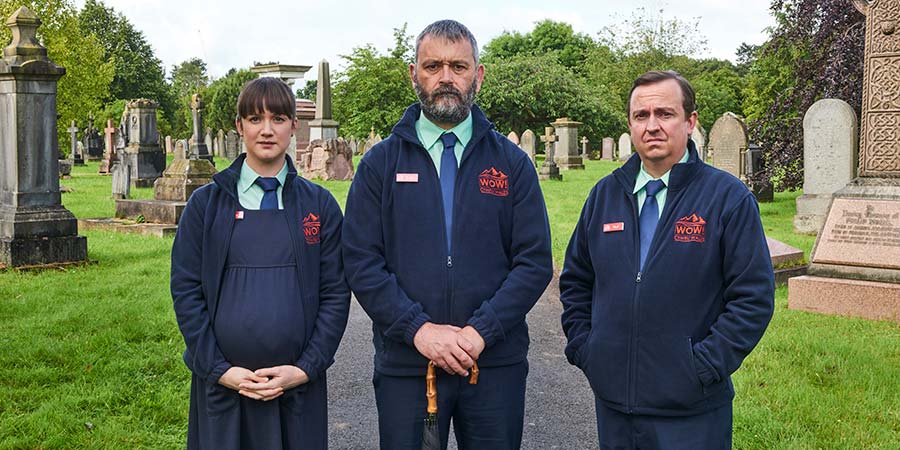
Given there's more than one of you contributing, how do you approach giving ideas or feedback?
Sian: I think we're very lucky in that we really enjoy writing together and are very good at bashing out ideas. None of us are ever that precious over whose idea was whose and we've always been very good at keeping an eye on the prize and focussing on what makes the best programme. If we do sometimes have differing points of views - if it's something that's genuinely made me laugh a lot but it hasn't landed - I'll try and communicate why and understand what is it that's not working for them. If I don't feel strongly, I'll work to change it. After all, if two people I respect have flagged it up it may just not be working in the way I thought. Also, because we divvy up certain scenes we have the freedom to put our own voice into it. If a scene works - great, it'll stay in and get even better when the performers come in. If it doesn't, that scene won't make the final edit. I suppose that's the ultimate feedback.
Tudur: That's exactly what I was going to say Sian, she always does this! ;)
Sian: We're very close.
Gareth: I think one of the reasons we work quite well together as a team is that we find each other's ideas funny - but we would rarely come up with the same idea. And if I bring something to the group, I know they'll suggest additions and improvements that I would never have thought of. I wonder if it's because we come from different parts of the country and have quite different backgrounds and angles on things. Maybe it's down to our geographic distribution. But I do feel that, across the three of us, we do have Wales covered.
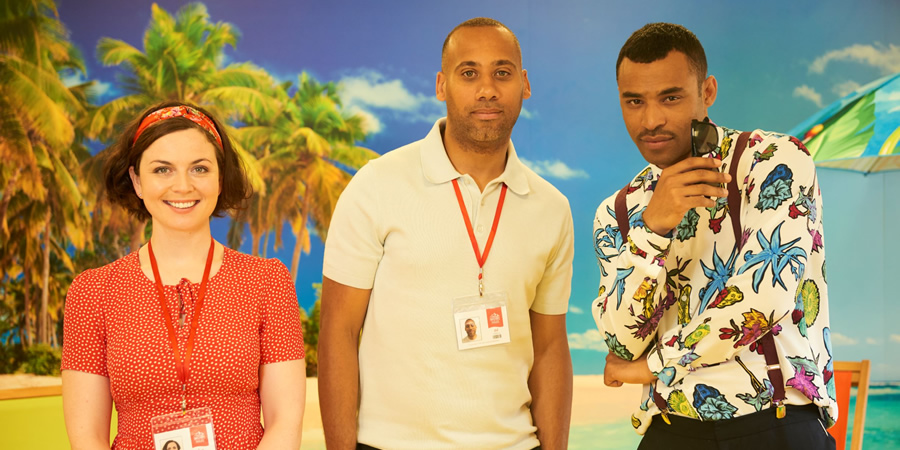
Is Series 2 easier to write for, or harder?
Sian: I find it far easier when you know the world and characters better. We also now know the process, the best way we work together, what's possible and how long things take. I seem to remember some of our plots for Series 1 were far too complicated - more like Sunday afternoon matinees.
Tudur: I found it a bit more daunting writing for the second series, partly because the first series was so well received but also because I was so in awe of what all the actors had done with the characters and felt a bit more pressure because we really didn't want to let them down. We needed to make the series not only as good, but better than the first, I hope we've done that.
Gareth: The process is so odd I think it took us a series to get to grips with it. It did for me anyway. Rab Christie is the exec producer on Scot Squad and Soft Border Patrol so was great at telling us what sort of things tend to work - but, even so, I think Series 1 felt more like a three hour pilot. I think that's why that rugby special was so useful. It was a great opportunity to have a run at it again so soon after Series 1 and tweak the process. It meant that by Series 2 we all had a much clearer idea of what we wanted the show to be. And it's also great to go into a series knowing exactly who is playing which role. I love our cast so much and what we put some of them through is absolutely horrendous.
Tell us about your favourite scene in Series 2. Why did you particularly enjoy working on that one?
Sian: Honestly there are so many funny scenes in this series - our cast are so brilliant at bringing ideas to life and adding to the mayhem. There's one scene where I'm helping Sally Phillips with her self-esteem by shoving crystals down her bra. I don't think 15 year-old Sian would have ever imagined that dream would come true. There's a scene where we're in a women's conference in Swansea where we all have to put our fears in a bin, one where Cariad Lloyd plays a mad chef and one where Nick Helm is a depressed IT genius. I was also lucky enough to direct some of the scenes in this series - and the one I shot with Tudur's character Gwilym shouting at small children for not 'enjoying the Welsh weather' was very funny.
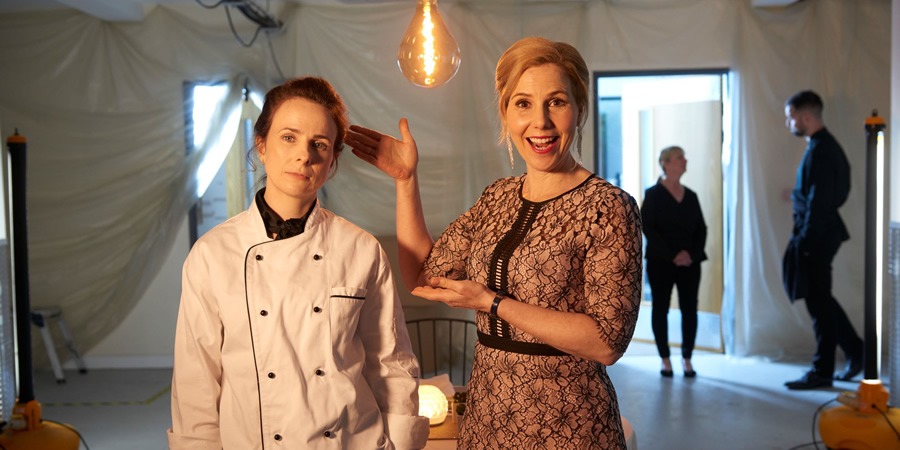
Tudur: The scene with the Corporate Team (Mike Bubbins and Mari Beard) and Welsh rugby legend Scott Quinnell. It's always a bit of a gamble when you get celebrities who aren't actors to take part in comedy shows, but every one has been fabulous on both series of Tourist Trap. Scott Quinnell is hilarious in his scene and totally understands why he was chosen to take part.
Gareth: Because of the way the first series of Tourist Trap was shot, the characters all tended to stay within their own teams - and not really meet-up all that often. To break away from that is very complicated for all sorts of reasons - both financially and logistically. However, Episode 6 follows the WOW! Wales Awards, hosted by Jason Mohammad, and as such we had almost everyone in the building at the same time. That was lots of fun. I remember arriving on set and seeing Tudur, Mike Bubbins and Leroy Brito all having breakfast together and thinking it looked like one of those special episodes of Doctor Who where they get loads of Doctors into one place - you're just not used to seeing it.
We had acres of material to get through. Basically any time in the series we needed two disparate teams to meet, this was the day to shoot it. We also had to make sure Jason was finished in time for him to get to Salford to do Match Of The Day that evening - so we were on the clock. With hindsight, it might have been easier to organise a real awards ceremony. I honestly don't know how the crew pulled it off, they were phenomenal. So it was all quite demanding but very satisfying to see it come together and I can heartily recommend Jason Mohammad for your forthcoming corporate event.
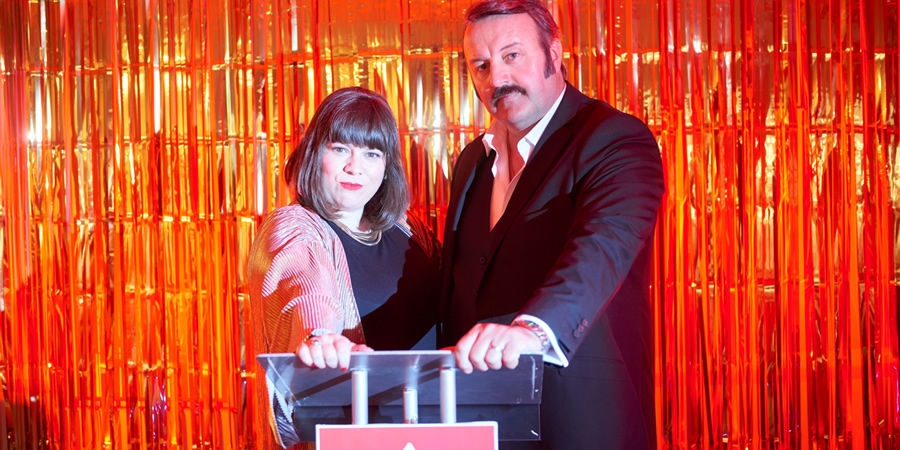
More generally, what is life like as a freelance writer? Making sure you've got year-round income...
Sian: Bad points: Juggling different projects. If working from home - having constant access to the fridge and sometimes having only the Deliveroo man to try jokes out on. Good points: Laughing every day, working with brilliant mates, never having to do Secret Santa.
Tudur: Not as good as my Instagram suggests.
Gareth: I could talk about this all day but what I would say is - if you can find a regular gig which is, say, every week or every month, hold onto that for as long as you possibly can! A little bit of regular income is ideal for giving you some peace-of-mind when navigating the peaks-and-troughs of the freelance lifestyle. I've always liked having something in the diary where I can say "And every Monday, I do this", in amongst the rest of the chaos.
Any tips for those looking to get involved in writing comedy?
Tudur: This is really boring, but... work hard, write constantly and try to get your comedy seen and heard in any way you can.
Sian: E.g. pull a moony on a bus. Seriously though, just write, all the time - the more you do, the better you get and Tudur is right. Try and get used to that fear of getting it out there. Social media is brilliant for that as it helps you start small and you can do it when you know you've got something good/funny to say.
Gareth: Submit material to Newsjack. It's a topical comedy show on BBC Radio 4 Extra with an open-door policy. I can get quite evangelical about this. I used to script edit the show and have seen first-hand how people start by submitting one liners and sketches. The ones with a good track record at that get invited into the room and progress to working on other radio shows and then just go from there. It's amazing really that there's a national radio station out there openly inviting you to write for some of the best stand-up comedians and sketch performers in the country. That's worth the licence fee alone. Oh, and also, you get paid - so in some ways you're making that licence fee back.
This article is provided for free as part of BCG Pro.
Subscribe now for exclusive features, insight, learning materials, opportunities and other services for comedy creators.



